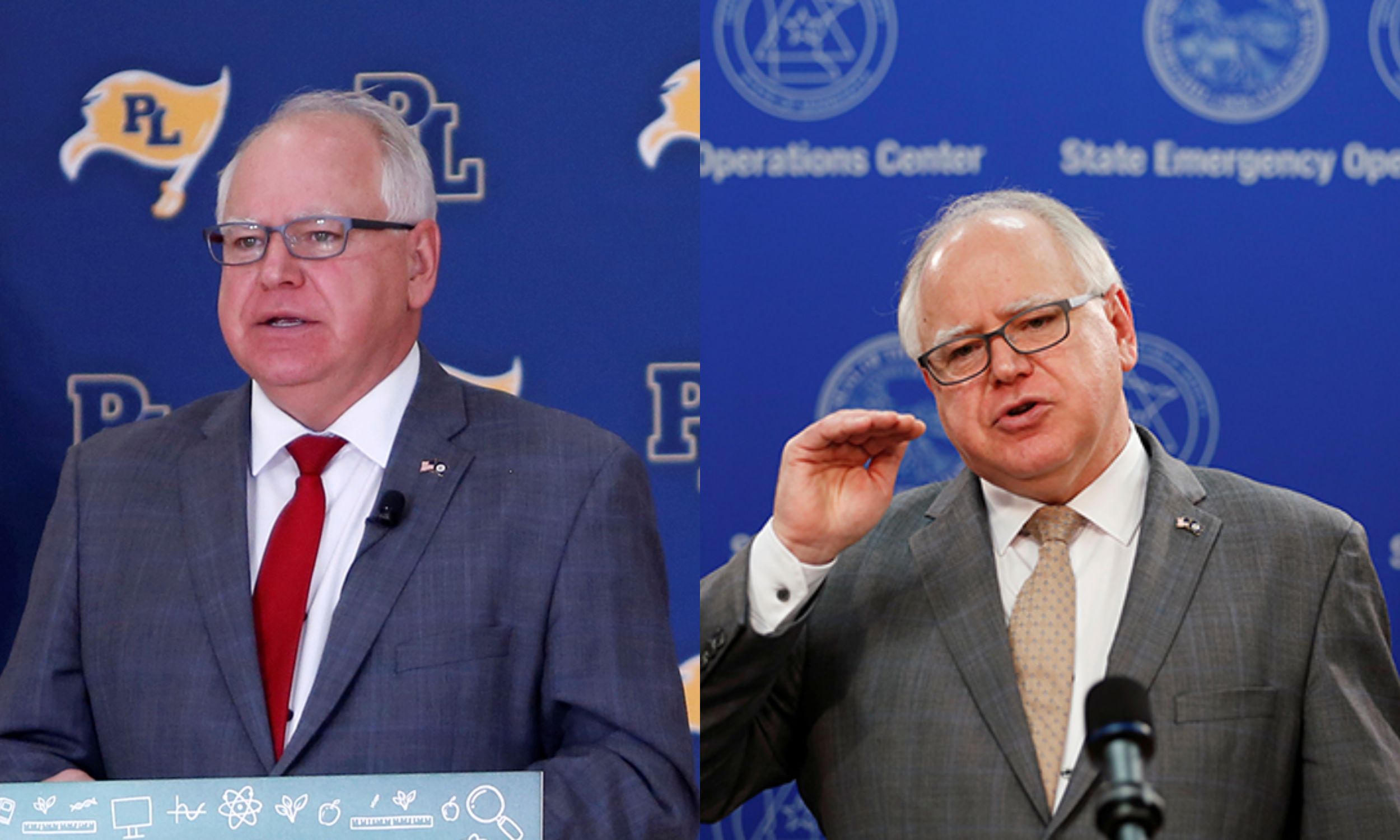Minnesota Governor Tim Walz has achieved a remarkable start as the Democratic vice presidential nominee, despite facing criticism from Republicans regarding his performance in office and military service. According to Decision Desk HQ, Walz boasts a positive net favorability score of 5 points, a contrast to many prominent politicians who are struggling with negative ratings.
Senator JD Vance of Ohio, Walz’s Republican counterpart, trails with a negative 9-point net favorability. Former President Trump’s rating stands at a negative 10, while Vice President Harris’s numbers are essentially tied. President Biden’s favorability is negative at 20 points.

Minnesota Governor Walz enjoys a favorable start in VP race, contrasting Vance’s negative ratings
Despite initial obscurity, Walz’s appeal has surged, credited to his approachable Midwestern demeanor and the revitalized energy of Harris’s ticket. With the election approaching in under 90 days, Walz’s challenge will be to maintain this momentum by emphasizing his relatable background, increasing national recognition, and performing well in the upcoming vice presidential debate.
Democratic pollster Ben Tulchin praised Walz’s strong debut, highlighting his folksy, relatable persona as a key asset. His background as a high school teacher and football coach has resonated well with voters. Although Vance gained some national attention from his memoir “Hillbilly Elegy,” he was largely unknown before Walz’s nomination.
A July ABC News/Ipsos poll revealed that 86 percent of voters had no opinion or knowledge of Walz before his nomination. Polls taken just before his announcement also showed Walz less known compared to other potential vice presidential candidates.
Walz, who has been popular in Minnesota, saw a huge rise in national profile after branding the Trump-Vance ticket as “weird.” His straightforward speaking style and Midwestern roots have helped him build a positive image nationally.
On the other hand, Vance has faced scrutiny over his memoir and his military record. Republican attacks on Walz’s military background have been countered by his robust support from Democrats.
Recent polls show Walz with a 9-point net favorability compared to Vance’s negative 10. The Economist/YouGov poll indicates that 44 percent of voters view Walz as qualified for vice president, while 37 percent feel the same about Vance. Although running mates typically have limited impact on presidential elections, the ongoing scrutiny of both candidates is shaping their public perception.
As Walz continues to build his national presence, he must pass the challenges of maintaining his initial success and expanding his appeal. Democratic strategist Joshua Ulibarri suggests that Walz’s current popularity benefits from his fresh introduction to voters, which may shift as the campaign progresses.
With the Democratic National Convention approaching and the vice presidential debate scheduled for October 1, Walz faces the critical task of leveraging his early success to solidify his place in the race.























